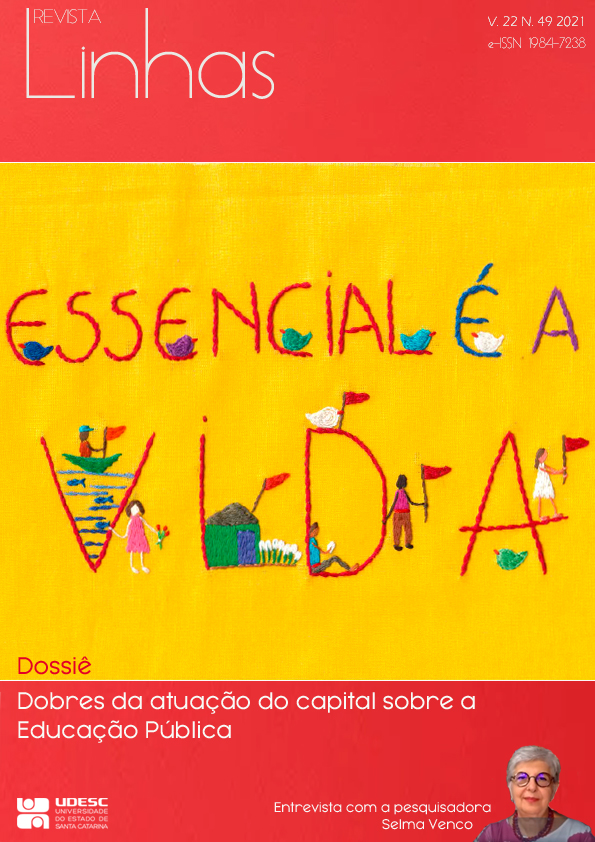SPECIAL EDUCATION, PANDEMIA AND THE CAPITAL EDUCATIONAL PROJECT
THE PRODUCTION OF A CONSENSUS
DOI:
https://doi.org/10.5965/1984723822492021106Abstract
This article aims to bring some elements to the discussion about how consensus is being produced regarding educational proposals for Special Education during the COVID-19 pandemic. To this end, I analyze national documents and those of business organizations that provide guidance for Brazilian education at that specific moment and carry out the balance of academic productions on “Special Education / COVID-19”, in view of the high number of publications on this subject in the last year. It can be seen that the public education project based on capital is underway in Brazil, which is being intensified during the pandemic. In the case of Special Education, the proposal of the government, business groups and most of the researchers is cohesive, whether in remote education or in face-to-face classes, the focus is on the necessary adaptation and training of the teacher, in the exaltation of the use of technologies and in curricular flexibility for students in this teaching modality. The family-school relationship is also a factor of common agreement, indicated as something insufficient before the pandemic and that today is gaining strength, being seen as the positive result of the health tragedy that the world is experiencing. The consensus produced results, in short, in the implementation of the privatization of the public school, in its various dimensions, wide open in the pandemic and also punctuated in the indications for Special Education in the regular school.
Downloads
Downloads
Published
How to Cite
Issue
Section
License
Os artigos publicados pela revista são de uso gratuito, destinados a aplicações educacionais e não comerciais. Os direitos autorais são todos cedidos à revista. Os artigos cujos autores são identificados representam a expressão do ponto de vista de seus autores e não a posição oficial da Revista Linhas ou do Programa de Pós-Graduação em Educação da Universidade do Estado de Santa Catarina.

A Revista Linhas está licenciada com uma Licença Creative Commons - Atribuição-NãoComercial-SemDerivações 4.0 Internacional.


